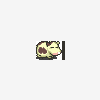-
Welcome to Celiac.com!
You have found your celiac tribe! Join us and ask questions in our forum, share your story, and connect with others.
-
Celiac.com Sponsor (A1):
Celiac.com Sponsor (A1-M):
-
Get Celiac.com Updates:Support Our Content
Best Fodmap Book
-
Get Celiac.com Updates:Support Celiac.com:
-
Celiac.com Sponsor (A17):
Celiac.com Sponsor (A17):
Celiac.com Sponsors (A17-M):
-
Recent Activity
-
- Scott Adams replied to shirlane's topic in Gluten-Free Foods, Products, Shopping & Medications1
Is AG1 safe for Celiacs??
From their website I see "organic barley leaf powder" as an ingredient. Keep in mind that the gluten is in the kernel, and not in the leaves. https://drinkag1.com/about-ag1/ingredients/ctr -
- Scott Adams replied to chrish42's topic in Doctors2
Doctors and Celiac.com
Before the rise of social media we were well known by a lot of doctors and were recommended by many, especially our Safe & Forbidden Lists, but as doctors get younger and younger this is probably not happening as much as before. -
- nataliallano replied to MagsM's topic in Related Issues & Disorders28
Inflammation and Menier’s disease link?
Thanks Scott I will definitely check my vitamins and minerals to see what I am missing so then I can supplement. I was very concern about my Meniers syntoms and i tryed to find some alive. Now im just realizing that my celiac is provably the root cause of my Meniers none of the 12 doctors I saw told me anything about this. This web site is so helpful... -
- Wheatwacked replied to Betsy Crum's topic in Related Issues & Disorders5
Chest pain from celiac
Vitamin D deficiency can contribute to rib pain. Chest pain stemming from the ribs ccould be costochondritis, which involves inflammation of the cartilage connecting the ribs to the breastbone. This pain can range from mild to severe, potentially mimicking heart attack symptoms, and is often worsened by breathing or movement. Other potential causes include...




Recommended Posts
Archived
This topic is now archived and is closed to further replies.